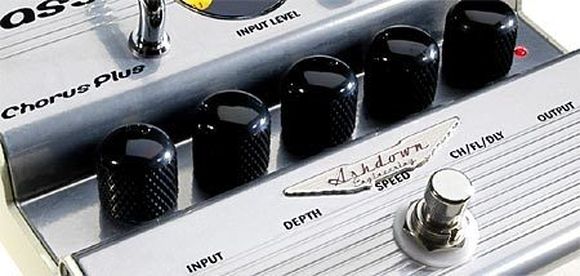8. Chorus
Alright, let's break it down: when two instruments play the same thing, they're never exactly in tune or play for exactly the same duration. This is what makes, let's say, a violin duet sound like more than just two violins.
Chorus
Now, about the chorus effect - it's like playing with pitch, but there's a tiny delay.
To recreate this artificially, you mess with the original sound by delaying it and changing its pitch. It's kind of like a beautiful musical echo. You can crank up the wow factor by adding more delayed paths and feeding their sound back into the mix.
Here are the things you want to tweak:
- How fast the pitch changes (modulation speed)
- How long the delay is
- How deep or intense the whole thing feels (depth)
Quick tip:
A classic chorus setup includes a delay of about 30 milliseconds, a depth of around 15 milliseconds (that's about 30% for you math folks), and a modulation speed of 1-2 Hz. But, easy does it - extreme settings can seriously throw your sound off.
This trick works great for electric piano or guitar. But if you want to make your singing sound fuller, it's smarter to mix together several separately recorded vocal tracks or use a special vocal effect gadget. Just like the one you can see in the picture below.

Specialized Vocal Effect Unit: The Voice Works Plus by TC-Helicon




